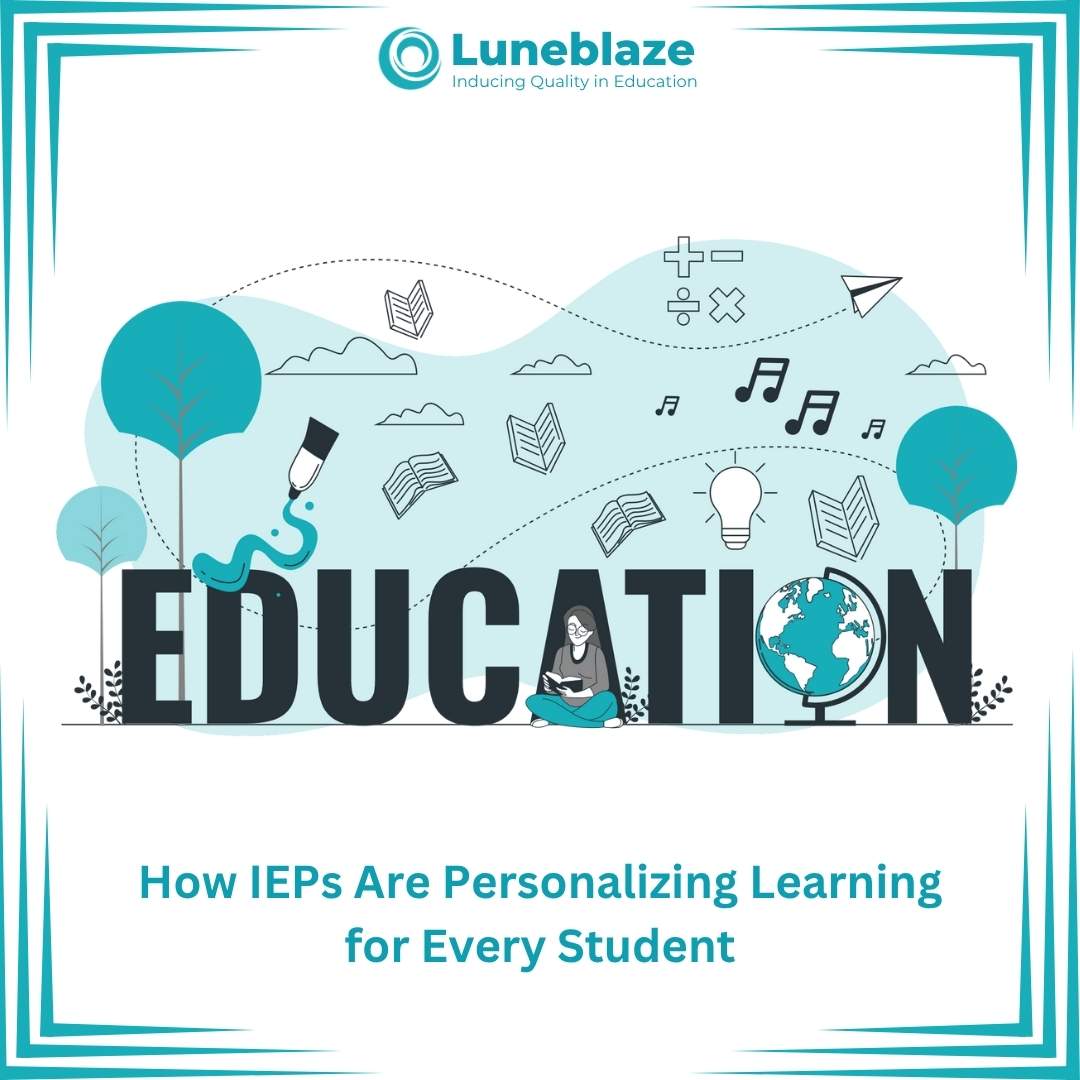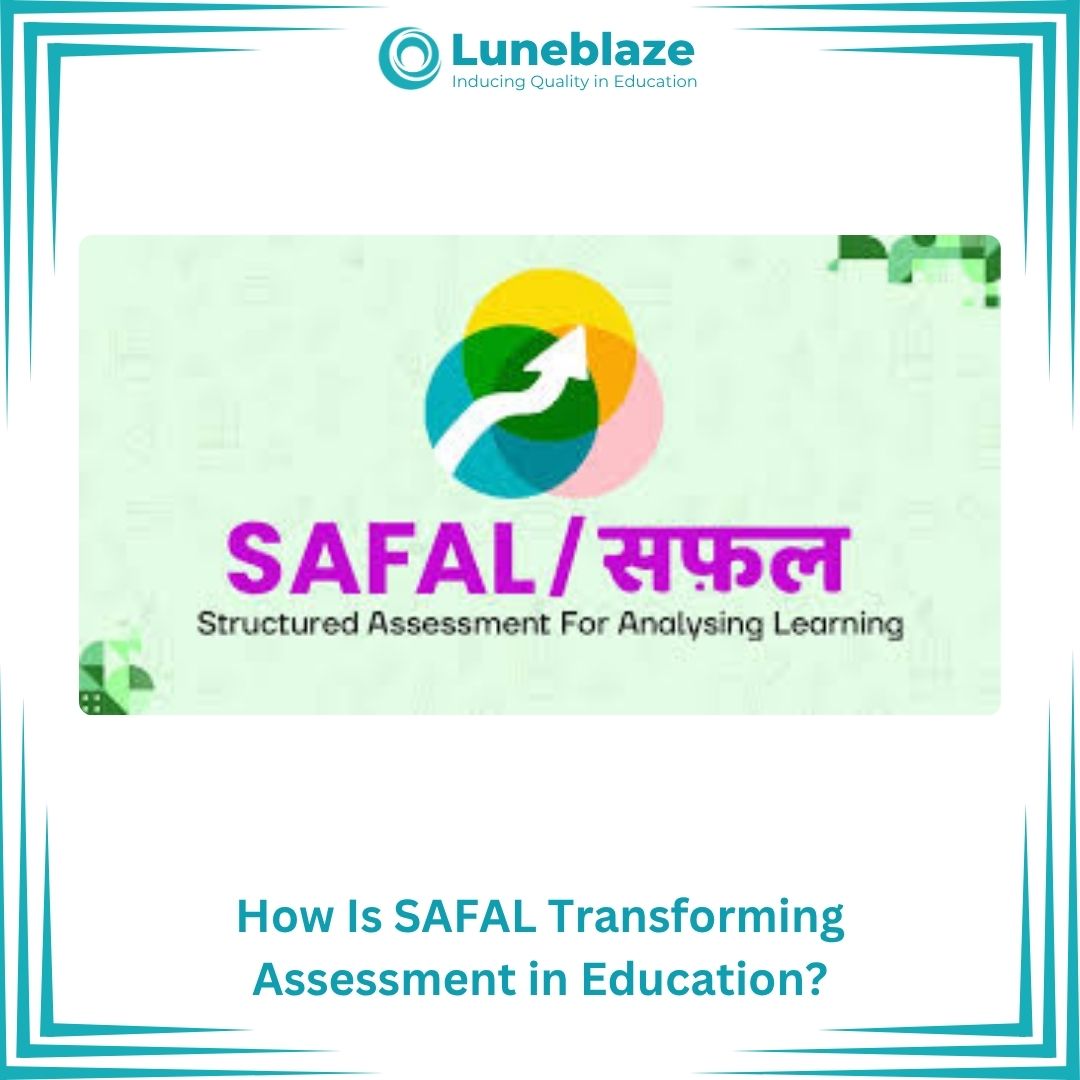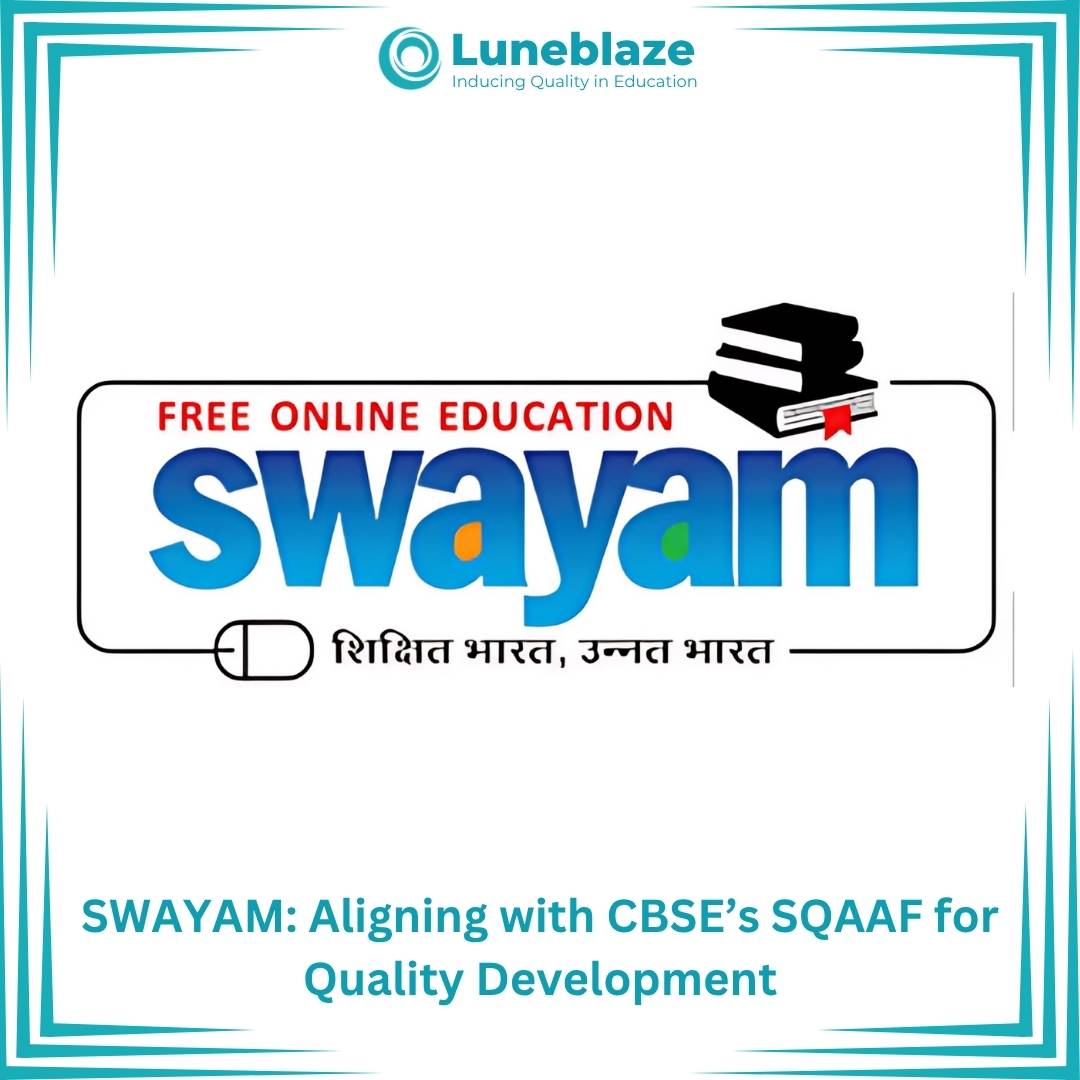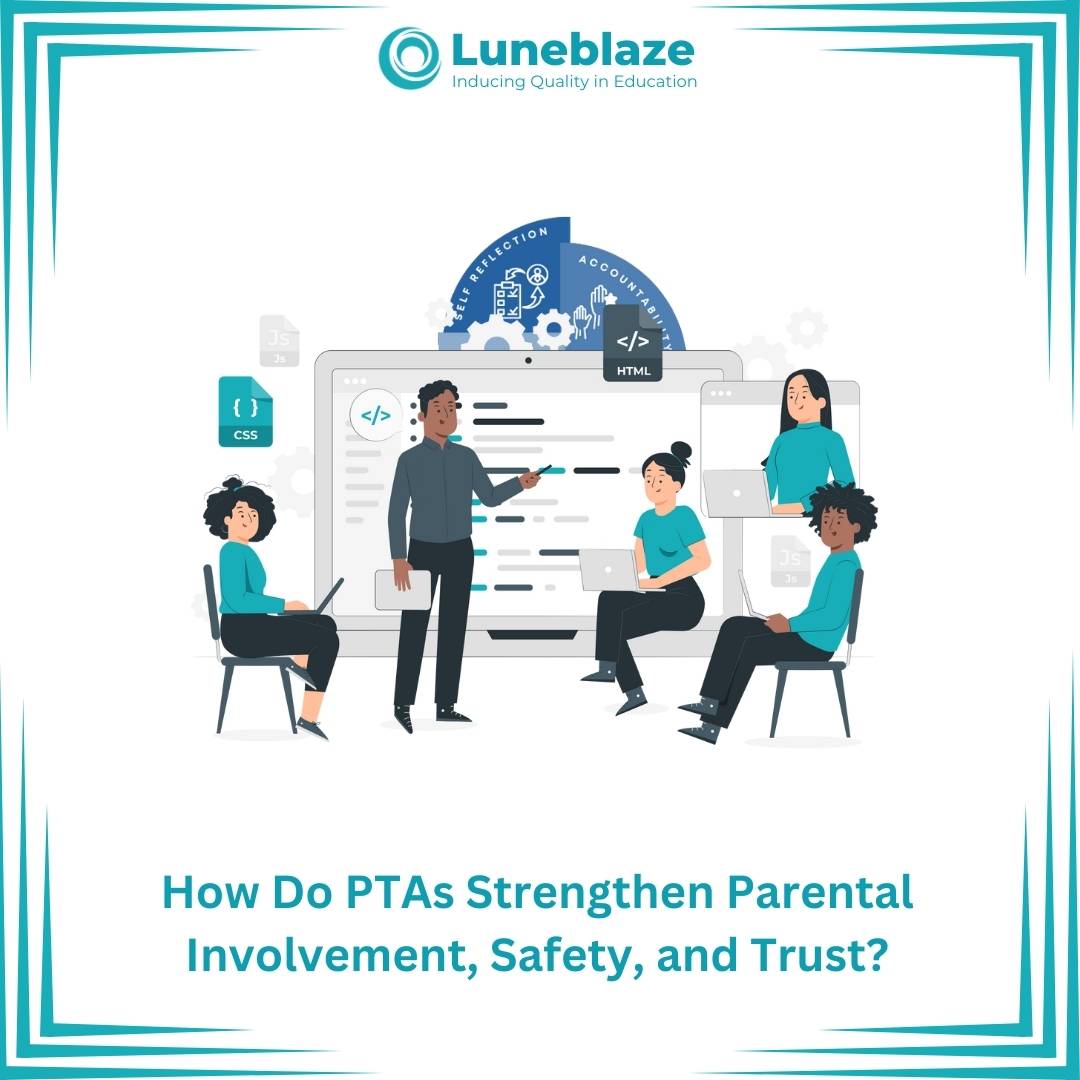Guidelines for Uploading Evidence on SQAAF Portal for Self- Assessment!
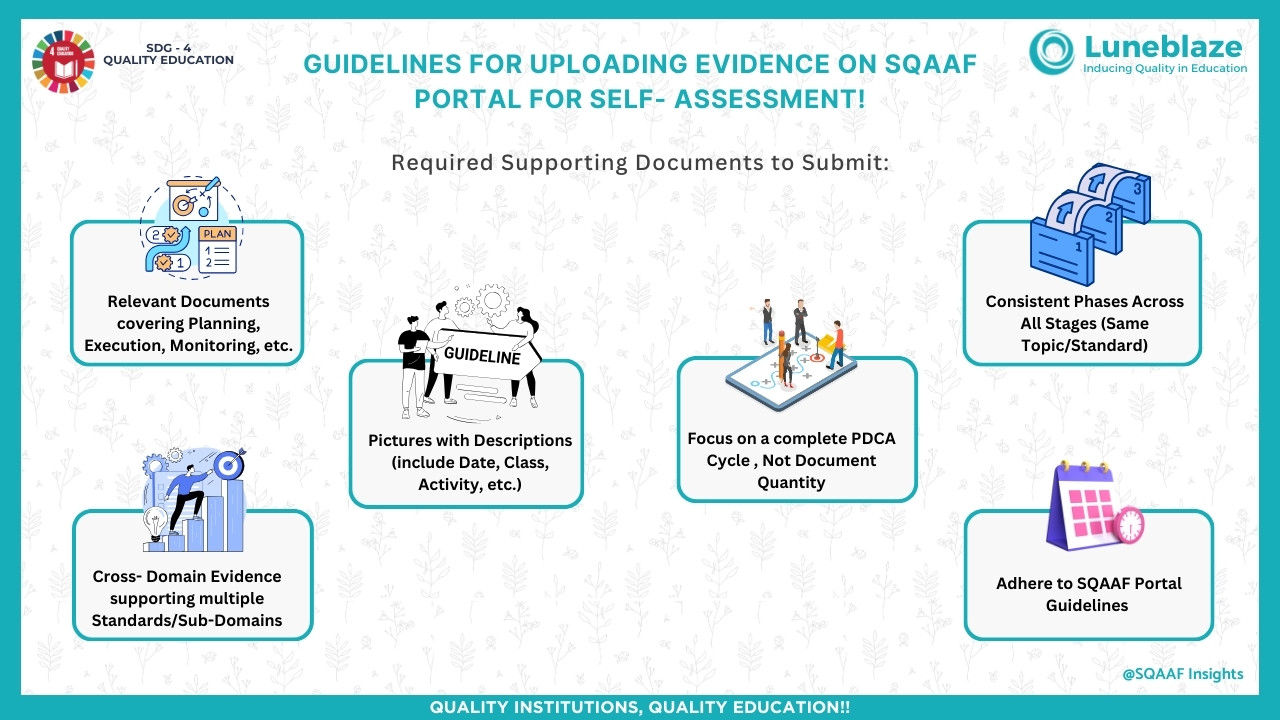
Dec 29, 2024
Envision a school where every teacher, administrator, and student works together seamlessly toward the shared goal of improvement. Picture a well-organized environment where every action is intentional, and progress is continuously tracked. This is the vision of the SQAA Framework, a system-driven approach that empowers schools to evaluate and enhance their educational practices. By maintaining essential supporting documents like policies, procedures, and guidelines, schools ensure effective evaluation and accountability, all while focusing on the ultimate goal: student success.
The requirement to upload evidence to the SQAAF Portal as part of the self-assessment process is not just a procedural step—it’s a key part of fostering data-driven accountability, gaining stakeholder support, and promoting resource efficiency. It also encourages schools to reflect on their practices and remain responsive to the evolving needs of educational leaders and students. This process allows schools to assess their strengths and identify areas for growth in a systematic way.
Maintaining supporting documents is not just about following rules; it’s about building a foundation for improvement. These documents serve multiple purposes: they provide the data needed to track progress, help gain the trust of the community, optimize resources, and enable schools to adapt and grow over time. They also encourage self-reflection, helping schools stay agile and responsive to challenges. By documenting their processes and practices, schools can ensure that they are continually improving and aligned with both their own educational goals and national standards.
When it comes to what schools should upload, the key is to showcase a comprehensive and reflective approach. The documents should highlight a process-driven methodology, demonstrate openness to improvement, and focus on the impact on student learning. It's important to ensure that evidence is contextualized—simply uploading a photo of an activity or a list of duties won’t be enough. To provide meaningful insight, include details such as class information, student participation, learning outcomes, and skills developed.
The documents uploaded should cover the entire PDCA cycle—Plan, Do, Check, Act—which ensures that all aspects of the school’s processes are captured, from planning and execution to monitoring and reflection. Quality is more important than quantity, and the focus should be on consistency across different stages of the process. Schools should also ensure they follow the portal’s guidelines carefully, paying attention to title formats, file size limits, and other technical requirements.
Once the documents are submitted, there’s an opportunity for expert feedback. Trained CBSE professionals will review the submitted evidence and provide valuable insights that help schools improve their processes and align more closely with best practices. This feedback is a crucial part of the self-assessment process, providing guidance that leads to continuous improvement.
Effective documentation practices are transformative. They enable schools to develop a culture of accountability, transparency, and collaboration. By emphasizing structured processes and evidence-based assessments, schools can gain a clearer understanding of their current practices and identify areas that need enhancement. These insights are not only useful for meeting accreditation standards but also serve as a roadmap for long-term educational excellence.
The journey toward SQAAF accreditation involves multiple stakeholders, each playing a vital role in ensuring success. Teachers need to understand the importance of aligning their teaching methodologies with documented plans, policies, and practices. Administrators must oversee the systematic collection and organization of evidence to ensure compliance and quality. Students, as the primary beneficiaries of this process, stand to gain the most through enhanced learning outcomes and an improved school environment.
Moreover, the SQAA Framework isn’t just about meeting minimum standards; it’s about striving for excellence. Schools that embrace this framework often find that the process itself fosters a deeper sense of purpose and community. The emphasis on continuous improvement ensures that every action is intentional, data-driven, and aligned with the school’s broader mission and vision.
Training and capacity-building efforts are essential components of a successful SQAAF journey. Regular professional development sessions can help teachers and staff understand their roles within the framework and equip them with the skills needed to contribute effectively. Topics such as data analysis, reflective practices, and evidence-based decision-making should be at the forefront of these training programs.
Community engagement is another critical aspect of the SQAA Framework. Parents, alumni, and local stakeholders should be informed about the school’s efforts toward accreditation and quality assurance. This transparency builds trust and fosters a sense of collective responsibility. Additionally, involving the community in the school’s activities can provide valuable perspectives and resources, enriching the overall educational experience.
Technology plays a significant role in simplifying the SQAAF process. Schools can leverage digital tools to manage their documentation, streamline workflows, and ensure compliance with CBSE requirements. From creating online repositories for evidence to using analytics tools for data-driven decision-making, technology can enhance the efficiency and effectiveness of the accreditation process.
To further support schools in their SQAAF journey, including self-assessment as a key component, Luneblaze provides a comprehensive end-to-end solution to schools for all their accreditation criteria needs, be it documents & evidence creation, self-assessment filing support on the CBSE SQAAF portal, faculty trainings, audits, and consultancy support. With the help of Luneblaze’s AI-enabled solutions, institutions can organize and manage all their data related to accreditation and assessments like SQAAF for schools.
Together, let’s raise educational standards. Partner with Luneblaze for SQAAF success. Reach out: sqaa@luneblaze.com.
Trusted by
100+
Institutions
worldwide
since 2017
Get started with Accreditation Excellence
Explore how our AI-enabled accreditation solution simplifies the accreditation journey


